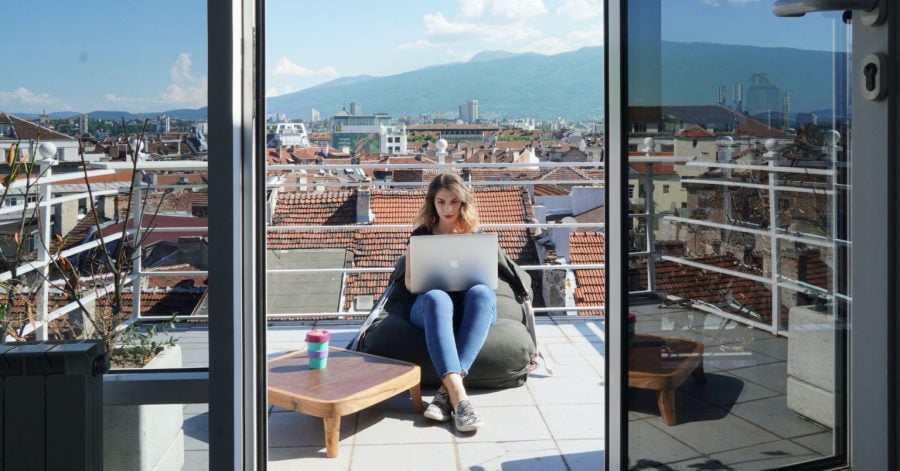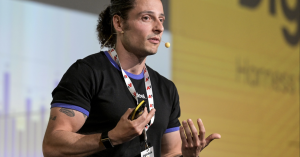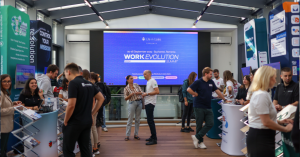How come that despite the widespread adoption of the work-from-home model, the coworking space globally is growing annually by almost 20%? The answer could be hidden in the tweak of the coworking space model which has transitioned from housing 2-3 people startup teams and freelancers, to housing whole corporate teams.
Most recently, the Bulgarian coworking space pioneer betahaus, announced its strategic partnership with one of the leading investment companies in CEE, GTC Bulgaria, part of the GTC Group. With the goal to expand operations and develop a new business line of flexible workspaces for larger teams, betahaus will open two new fully equipped spaces in class A buildings in Sofia.
Betahaus Sofia is part of one of the most successful coworking networks in Europe, with branches in Berlin, Barcelona, and Hamburg. For 10 years since its establishment, betahaus has successfully established the model of shared offices, doubling the spaces from which some successful Bulgarian companies such as Daye, Mysupply, and Scaleflex started. Betahaus Sofia is also home to the local team of Coursera, the SEE-oriented VC firm BrightCap Ventures, and to us, The Recursive.
Besides being the first coworking space in Bulgaria, betahaus is now also a first-mover in the corporate team’s flexible office space in the country. According to Metodi Terziev, CEO at betahaus Sofia, the collaboration between betahaus and GTC Bulgaria comes as an answer to the growing demand of larger teams for flexible solutions in business areas. The value of working from a shared office for corporate teams is beyond flexibility, as Metodi Terziev explains. They benefit from having lower real estate costs and larger access to top talent as well as from working in an environment that facilitates innovation.
This rising demand falls within a global trend for replacing the corporate office with a coworking space. By the end of 2021, reports already showed that over one-third of workers in coworking spaces are corporate workers. WeWork, for instance, houses the teams of Bank of America, Facebook, and Microsoft, among other corporate clients, which make up 25% of WeWork’s annual revenue.
More about the portfolio expansion of betahaus
Together with the two new coworking spaces, betahaus Sofia will own a total area of 5000 sq.m. The new spaces of betahaus Sofia will be located in the Class A offices buildings owned by GTC Bulgaria – in Advance Business Center (Business park) and Sofia Tower (Mall of Sofia). Some of the companies that will inhabit the new spaces are KBC Global Services, Quickbase (a company that acquired LAUNCHub portfolio company Cloudpipes), Rambus, and PDS Group.
“On the one hand, this approach will bring additional opportunities to our current and future tenants to be more flexible and in step with new trends in the work of employees, which are a consequence of the pandemic. On the other hand, we believe that this proposal will be a good option for individual tenants who prefer smaller work areas where they can carry out the activity in a pleasant business atmosphere,” Ziv Gigi, managing director of GTC Bulgaria says.







